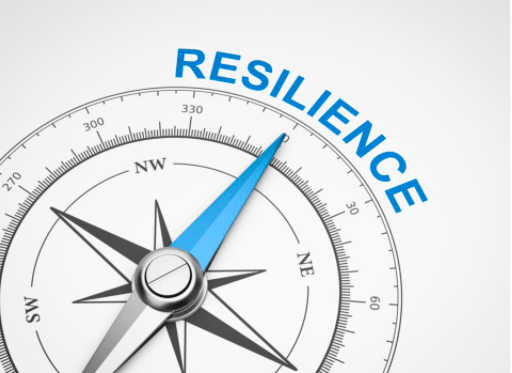Resilience - what is it and how do I get it?
Nicholas Wykes • June 8, 2021
It's certainly fashionable, we know we need it, but what exactly is resilience?

According to the dictionary resilience is the ability to recover quickly from setbacks, toughness, and that seems to be a very valuable trait. According to sport psychology literature resilience is the psychological reintegration process based on the ability to learn new skills from stressful experiences.
Well, that’s cool, we should all do that, we should all be resilient.
What this looks like in practice depends on who you talk to. It could be the consequence of agitation states caused by exposure to stressors and managed by personal resources. Following some adverse event the reintegration of the athlete leads to a positive response and enhanced resilience skills (Galli & Vealey, 2008).
Or perhaps this resilience depends on the nature of the stress, cognitive evaluation by the athlete, meta-cognition (thinking about thinking) and personality factors, not to mention influenced by the athletes relationship to their environment (Fletcher & Sarkar, 2012).
So far so not very clear at all.
So let's move on from trying to define resilience – to paraphrase the US supreme court justice – "it’s hard to define but I know it when I see it…”, what does it look like? Well, recent research is a bit clearer on this topic, settling on five key psychological factors, positive personality, motivation, confidence, focus and social support.
So it appears that advances in research into resilience among athletes has begun to tease out a crucial truth, one that is often obscured in the academic language of research:
resilience is not something that you have, it’s something that you do. And as with all things that we do as athletes we have to identify it, learn the skills, practice and improve. And with all developing skills having an optimised learning environment is
crucial.
Each of the mental skills that enable and enhance resilient behaviour is solidly in the realm of coachable – for my take on psychological factors that are lazily left as the athletes responsibility but really should be the remit of the coaching and performance staff see
this post
– and it is the purpose of the performance team to establish, manage and enhance each of them. High performance organisations and athletes employ experts to help deliver these skills, perhaps wider acceptance of things like resilience as functional abilities of athletes, to be nurtured, developed and maintained rather than static traits that players either have or don’t have, will lead to better psychologically resourced teams.
High performance teams and athletes can, and do, exploit the competitive advantages of resilience, advantages that have been carefully nurtured and developed as an integral part of their preparation process. In much the same way as having athletes who can lift progressively heavier things, or run a 4.6 rather than a 4.8 occupies such a central focus of sports preparation, being able to recover quickly and positively to setback and adversity will have such a significant performance benefit that optimising these skills really demands attention. It's not a thing players have it's a thing they try to do.
So how do we go about developing our players into resilient, high performers based on what the research is telling us? That's what sport psychologists do, so heres what a sport psychologist suggests:
• Support athletes in their challenge appraisal mindset, this is especially pertinent for younger players less experienced in the natural adversity of sport.
• Institute and deliver coaching practices that emphasise and optimise the intrinsic motivation
of the athlete.
• Structure developmental activities that emphasise core competencies and integrate stretch activities to simultaneously develop skills without damaging confidence.
• Foster an environment free from distraction, contradiction and role ambiguity that allows athletes to focus their attention on clear goals and purpose.
• Work to ensure that there is a comprehensive athletic, psychological and social support network for the athletes.
To mangle yet another well-worn trope ‘if you build it, they will develop the skills and you will realise that they were here all along’.
I specialise in working with athletes and teams to help develop consistently high-performance players and collectively resilient teams, if you’d like to discuss any of this further and how to build resilience into your skillset then get in touch,
I’d love to hear from you.
Fletcher, D. & Sarkar, M. (2012) A grounded theory of psychological resilience in Olympic champions. Psychology of Sport and Exercise, 13, 669-678
Galli, N. & Vealey, R. (2008) Bouncing back from adversity: Athletes’ experiences of resilience. Sport Psychology, 22, 316-335
Share
Tweet
Share
Mail




